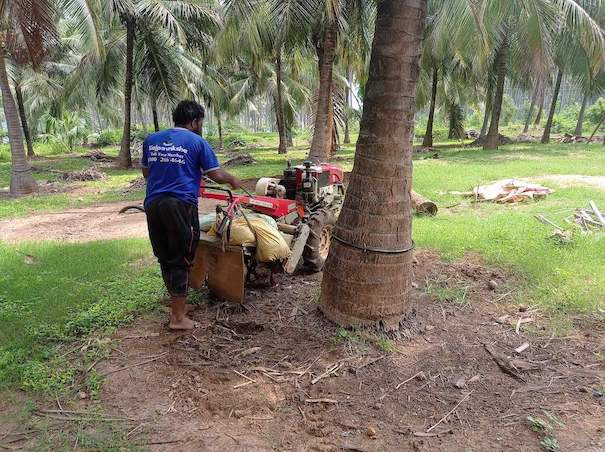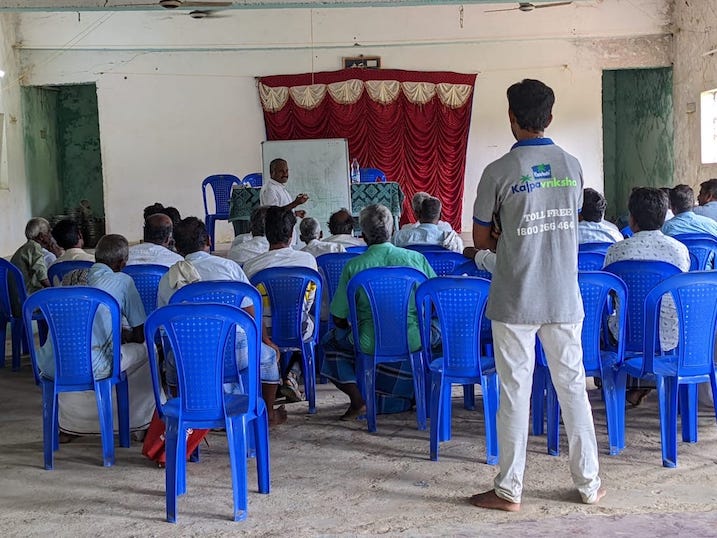World Coconut Day is celebrated on September 2 every year. The objective of the day is to raise awareness of the value of coconuts and disseminate information about their numerous benefits. Coconuts are among the most consumed fruits worldwide. This increases the economic importance of the fruit, and the farmers involved in its production significantly.
With an objective of taking farmers beyond traditional agricultural practices, Marico Limited took it upon itself to train them in the gamut of agricultural management, thereby educating coconut breeders to ensure increased productivity and higher yields. Kalpavriksha, a recently introduced initiative for the farmers, was therefore launched on World Coconut Day (September 2, 2017). Parachute Kalpavriksha Foundation, a separate non-profit company, is now operating the Parachute Kalpavriksha programme for enhancing the farm yield and earnings of coconut farmers.
In an exclusive interaction with The CSR Journal, Mr. Amit Bhasin, Chief Legal Officer & Group General Counsel and Secretary, CSR Committee, Marico Limited, sheds light on how the Parachute Kalpavriksha programme is empowering the coconut farmers in India.
1. What are the objectives of the Parachute Kalpavriksha programme?
Sustainability has always been an inseparable part of Marico’s ethos. Committed to making a lasting difference, we are determined to look beyond our operational boundaries to positively impact society by nurturing and empowering the community through education, skill development and innovation.

The Parachute Kalpavriksha Foundation, our flagship initiative, was launched five years ago to make a difference in the lives of the farming community. Launched in 2017, the Parachute Kalpavriksha Foundation is focused on helping our agricultural partner improve their productivity, livelihood, and overall quality of life by supporting farmers beyond traditional agricultural practices. The Parachute Kalpavriksha Foundation operates to integrate sustainability in farming practices by training the farmers in various aspects of farm management. Moreover, under this program, farmers undergo training in scientific and research-based agricultural practices, which further leads to productivity and income improvement. The overarching aim is to equip the farming community with the steps to drive lasting change in their lives.
We have over 2.55 Lakh acres and 62,900 farmers currently enrolled with us. Through our efforts, we have led to a 15% enhancement of their productivity rates in FY22, and more than 1000 farmers have given us 4.22 points on an average (out of 5). We aim to cover a total of 4.05 acres and impact over 1.16 Lakh farmers, reaching a productivity enhancement rate of 16% by FY25.
2. What are the features of the program, and how does it help the farmers?
Our primary purpose with the Parachute Kalpavriksha Foundation is to equip farmers with all the tools and knowledge they may need to increase their crop yield, leading to an enhanced income opportunity. The idea is to provide them with the know-how to improve their output for the long term through sustainable practices so that eventually, they can continue to do so independently. We have leveraged a ground-breaking socio-economic development model to empower the farmers with the necessary skills and knowledge base through various initiatives, including:
Extensive agronomist network: We have put together a team of over 120 qualified agronomists who are tasked with imparting regular training to the farmer beneficiaries. This allows them to stay updated about the best practices and the latest developments. This team visits the farmers, supports and guides them, and addresses any farming-related issue.


